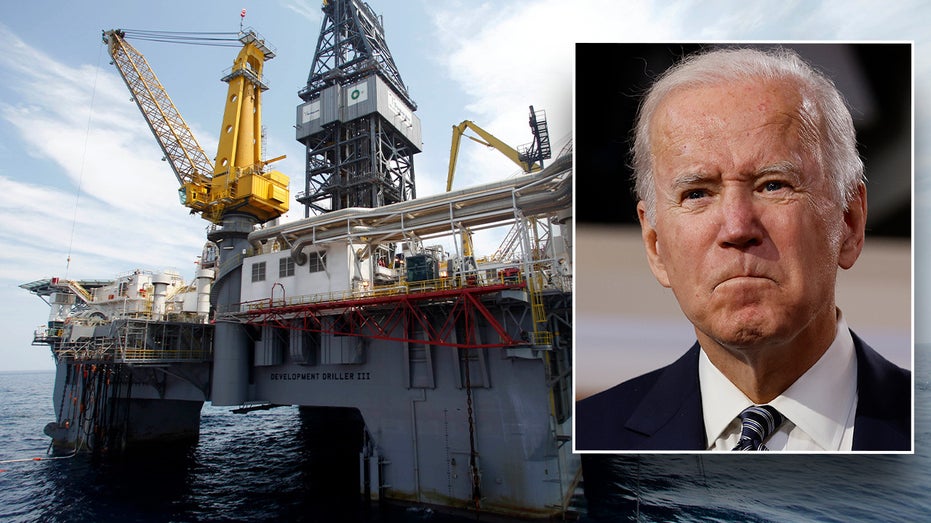A federal appeals court panel ruled in favor of energy industry groups in an order Tuesday evening requiring the Biden administration to hold a massive offshore oil and gas lease sale without eco restrictions.
The 5th Circuit Court of Appeals ruled in the decision that the Department of the Interior’s Bureau of Ocean Energy Management (BOEM) must move forward with Lease Sale 261, a large Gulf of Mexico oil and gas lease sale mandated under the Inflation Reduction Act. The sale was originally scheduled for September, but was postponed after BOEM implemented last-minute environmental restrictions.
“Energy independence scored an important win tonight with the Fifth Circuit decision lifting unjustified restrictions on oil and natural gas vessels and restoring acreage for offshore energy development,” American Petroleum Institute (API) Senior Vice President and General Counsel Ryan Meyers said in a statement.
“The U.S. Gulf of Mexico plays a critical role in maintaining affordable, reliable American energy production, and today’s decision creates greater certainty for the essential energy workforce and the entire Gulf Coast economy,” he continued.
DEVELOPER AXES 2 MAJOR OFFSHORE WIND PROJECTS IN BLOW TO BIDEN’S GREEN ENERGY GOALS
The ruling Tuesday upholds a lower court decision which struck down the federal government’s late modification of Lease Sale 261. BOEM added environmental restrictions to the sale and blocked off millions of acres previously scheduled to be leased during the sale in August, one month after the government entered into a federal stipulated stay agreement with environmental advocacy organizations.
The July settlement with environmental groups came after years of litigation and specifically expands protections for the Rice’s whale, a species listed as endangered. However, the appeals court ultimately ruled that delaying Lease Sale 261 wouldn’t protect the species which has rarely been located near the leases offered in the sale.
BIDEN ADMIN UNVEILS SWEEPING NEW ACTIONS INCREASING COSTS FOR OIL, GAS LEASING
“At least one whale would need to traverse the area in which oil-and-gas activities are occurring under Lease Sale 261 and be killed by such activities,” the appeals panel decision states. “But in four separate environmental reviews over the last seven years, BOEM concluded that additional protections for the Rice’s whales are unnecessary outside of their ‘core’ habitat in the eastern Gulf — an area unrelated to Lease Sale 261 that has long been protected from oil-and-gas leasing.”
“At least one member of an Intervenor organization would need to go sight-seeing in the Rice’s whale’s habitat with intent to see the Rice’s whale after its population is diminished — events the dates of which remain unknown,” it continues.
After BOEM issued its Lease Sale 261 restrictions in August, API, which is the nation’s largest fossil fuel industry group, alongside the State of Louisiana and U.S. oil company Chevron, sued BOEM after the agency issued its Lease Sale 261 notice of sale, which made six million fewer acres available to oil and gas extraction than previously scheduled, as part of a settlement with eco groups.
The agency also created multiple vessel restrictions for companies that obtain leases.
Then, on Sept. 21, Judge James Cain of the Western District of Louisiana granted a preliminary injunction to plaintiffs and ordered the Biden administration to proceed with Lease Sale 261 without restrictions. After the government appealed, the appeals court allowed BOEM to delay the sale until Nov. 8.
And late last month, the appeals panel issued a stay on the lower court’s preliminary injunction. As a result, BOEM announced on Nov. 2 that it would indefinitely postpone the sale, a move criticized by bipartisan lawmakers including Senate Energy and Natural Resources Committee Chairman Joe Manchin, D-W.Va.
Under the appeals court ruling Tuesday, BOEM is required to hold the sale within 37 days.
“The court’s ruling is a necessary and positive response to an unwarranted decision by the Biden administration,” said Erik Milito, the president of the National Ocean Industries Association. “The removal of millions of highly prospective acres, along with the imposition of excessive restrictions, resulted from a voluntary agreement with activist groups that sidestepped legal processes, disregarded scientific considerations, and neglected public input.”
“The escalating geopolitical tensions and instability in various oil-producing regions emphasize the critical role of the U.S. Gulf of Mexico,” he continued. “To fortify our national security stance, it is essential to champion strength and support U.S. oil and gas production.”
Milito added that the ruling Tuesday stands in contrast to federal policies like easing oil sanctions on Venezuela and Iran which are actions, he argued, “that could contribute to heightened global unrest.”
“Fully leveraging America’s energy production capabilities, especially our offshore resources, is imperative to address some of our nation’s most pressing challenges,” he said.
BOEM didn’t immediately respond to a request for comment.
























